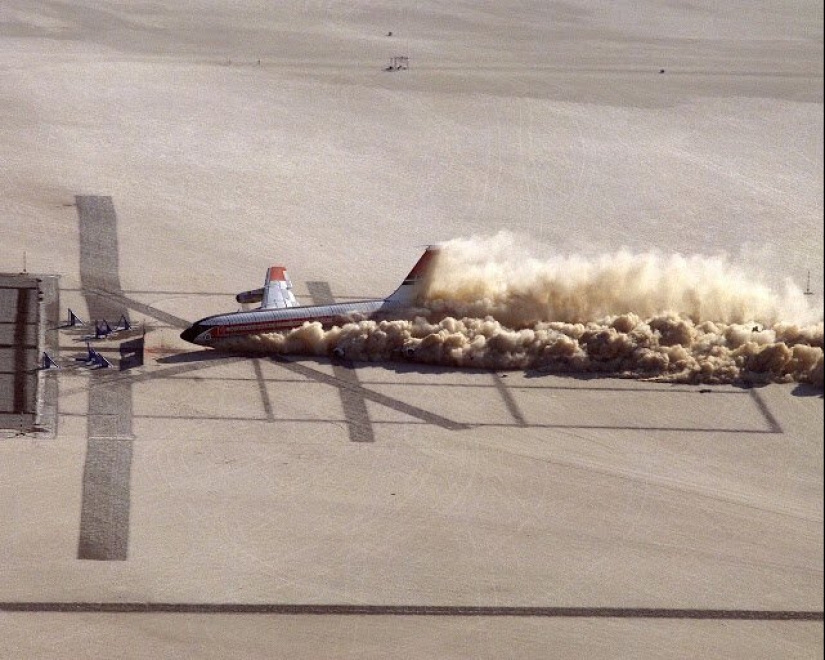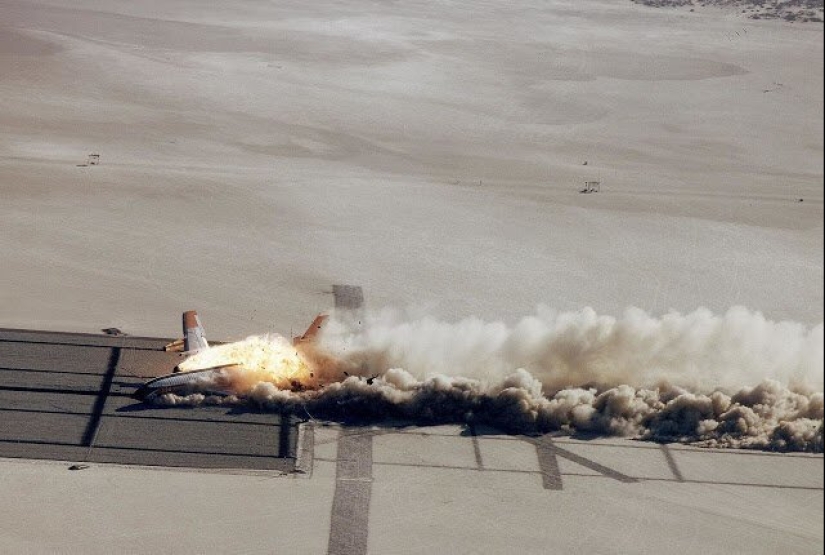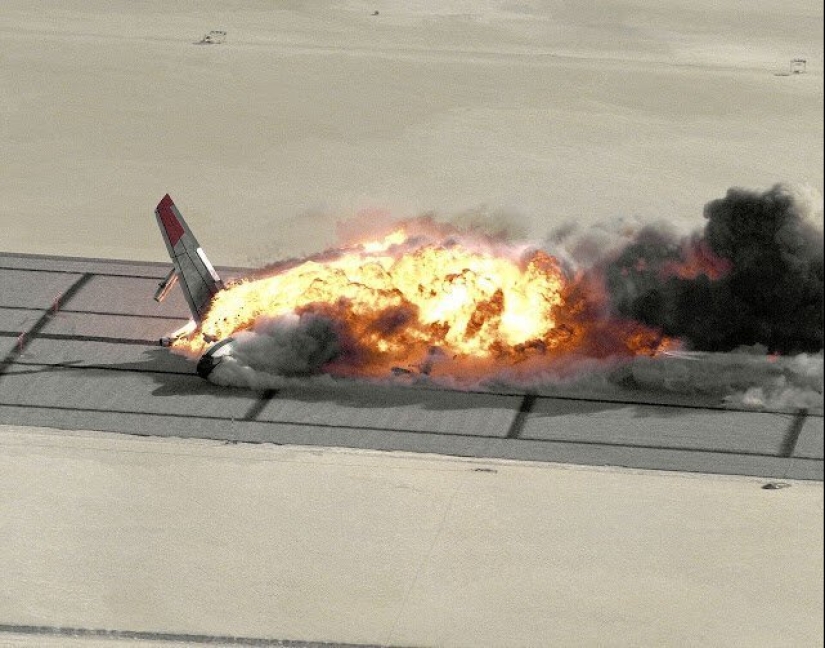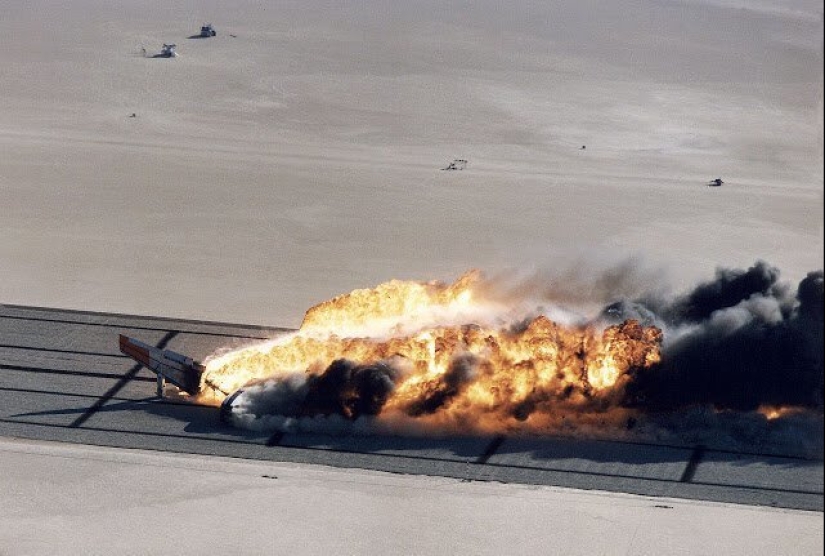How NASA Blew up a Boeing to Study a Plane Crash from the Outside and Inside
Categories: Catastrophes | Science | World
By Pictolic https://pictolic.com/article/how-nasa-blew-up-a-boeing-to-study-a-plane-crash-from-the-outside-and-inside.htmlIn 1984, NASA and the US Federal Aviation Administration staged a controlled crash of a Boeing 720 aircraft to test new technologies for the survival of passengers and crew. The explosion was carried out remotely, during the experiment no one, except the dummies, was injured.

On December 1, 1984, specialists from NASA and the US Federal Aviation Administration conducted a controlled crash of a Boeing 720 aircraft to test new survival technologies for passengers and crew. The experiment was prepared for more than 4 years and went according to plan. The demonstration turned out to be impressive: the fire on the strip could not be extinguished for more than an hour.

As a result of the experiment, it was found out that up to a quarter of passengers can survive in such an accident, and additives that reduce the atomization and evaporation of fuel do not reduce the likelihood of fire, and also allowed scientists to draw conclusions about what changes in the equipment of the passenger seat are necessary to improve passenger safety.
NASA engineers have also found out that a centimeter-range landing system and a collimator aviation indicator can help pilots ensure a safer landing.

On the morning of December 1, 1984, an experimental aircraft took off from Edwards Air Force Base in California. The car was remotely controlled by NASA test pilot Fitzhugh Fulton. The tanks were completely filled with 34 tons of fuel. The plane was flying at an altitude of 700 meters.

The flight time was 9 minutes, after which the car went on a smooth descent. After passing the decision-making height (46 meters), the plane turned slightly to the right of the desired trajectory and fell into the so-called "Dutch roll".

Continuing to descend with a certain miss past the runway and at a speed below the required speed, the aircraft received a remote command to land.

The plane touched the runway with a roll to the left wing, at full thrust. The nose of the aircraft also deviated to the left. Massive metal devices were pre-installed on the strip to ensure circling. One of them punched the engine 3 behind the combustion chamber, as a result of which the engine remained on the wing pylon.
The second device pierced the fuselage, after which fuel from the burned-out engine got there and a fire started.

According to experts, in a real emergency situation, the aircraft would have behaved somewhat differently, but the accident turned out to be as plausible as possible and allowed us to collect a lot of data that further improved flight safety.
Keywords: Crash | Airplane | Experiment
Post News ArticleRecent articles

It's high time to admit that this whole hipster idea has gone too far. The concept has become so popular that even restaurants have ...

There is a perception that people only use 10% of their brain potential. But the heroes of our review, apparently, found a way to ...
Related articles

Professional poker players are undoubtedly gambling people. Even being away from the poker tables, they can't resist playing and ...

Has anyone tried adding flowers to ice? We don't. But, apparently, in vain. So any drink immediately becomes more interesting, even ...

Photographer Dylan Hamm has been wondering for a long time how many microexpressions our face takes that we don't even know about. ...

New Year's is a time to surprise and delight loved ones not only with gifts but also with a unique presentation of the holiday ...